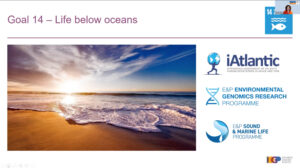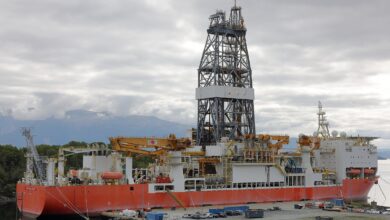IOGP Executive Director: Industry must be more vocal in order to maintain its social license to operate

By Stephen Whitfield, Associate Editor
The oil and gas industry plays a central role in meeting the energy needs of billions of people around the world while also contributing to global economic development. That is an undeniable fact, even as many countries enact policies to lower emissions as part of wider strategies around climate change. For the oil and gas industry, this means we must be even more vocal about the work it does in order to maintain its social license to operate in a low-carbon world, said Iman Hill, Executive Director of the International Association of Oil and Gas Producers (IOGP).
She notes media headlines about our industry and climate change always carry the same message: that the people working for this industry don’t care about the planet. “But that couldn’t be further from the truth or the facts,” Ms Hill said. “If public perception is shaped by unbalanced and distorted framing, there are bound to be adverse outcomes, not only for our industry but for our society.”
In a keynote address at the 2021 IADC HSE & Sustainability Europe Conference on 15 September, Ms Hill spoke about the role the industry already plays in energy transition. She focused especially on the United Nations’ Sustainable Development Goals, a collection of 17 interlinked global goals enacted in 2015 to provide a blueprint for a more sustainable future by 2030.
In particular, two of those 17 goals have inextricable links to oil and gas – life below the oceans and climate action, and she discussed the work IOGP is engaged in to promote ocean science and lower emissions. This includes participation in iAtlantic, a multidisciplinary research program that aims to assess the health of deep sea and open ocean ecosystems across the Atlantic Ocean. Further, the group launched in 2019 the IOGP Environmental Genomics Joint Industry Program, collaborating with academia and regulators to coordinate research aimed at exploring the application of environmental DNA-based analyses in environmental assessments and monitoring of operations. Environmental DNA, or DNA shed by organisms into aquatic or terrestrial environments, can be used to detect organisms and estimate biodiversity.
Providing the industry with access to comprehensive ocean data can be valuable for initiatives that assess the health of ocean ecosystems, Ms Hill said. “One of the targets of the Sustainable Development Goals is to increase scientific knowledge, research and technology. The oil and gas industry is doing considerable work towards this target that many people are unaware of, and are often surprised by. We are engaged in a variety of initiatives to support ocean science as a force for good.”
For the climate action goal, Ms Hill noted that the industry is contributing in many ways to reducing emissions. Industry associations like IOGP already play important roles in getting more companies involved in low-emissions initiatives. She touted IOGP’s Low Carbon Agenda, which identifies four areas through which the industry must make coordinated step changes: carbon capture and storage, electrification, energy efficiency and flaring. The association has set up an Energy Transition Directorate that will take the lead in delivering tangible step changes in each of those areas.
“We all need to contribute, because we’re not doing enough,” Ms Hill said. “We need CO2 emissions to provide safe boundary conditions and inspire the same innovation that we have when discussing the safety or the health of our workers.”




